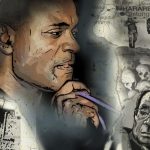How the DRC influenced Zimbabwe’s history
The fall of colonialism in what was then Zaire was brutal and bloody, boosting white resistance in neighbouring countries and setting them on a different course.
Author:
23 January 2020

If links in the histories and politics of the Democratic Republic of the Congo (DRC) and Zimbabwe (formerly Southern Rhodesia) are often not made, it is because they are not obvious at first glance. The former was a colony of the Belgians and the latter a settler colony of the British.
Belgium bequeathed to the DRC the French language and its attendant cultures, while Britain gave to Southern Rhodesia the English language and its various burdens. Yet, a closer examination of the two countries shows histories, politics and cultures so intertwined that, to parody an old cliché, when once there was an equatorial downpour in the DRC in 1960, Southern Rhodesians took out their umbrellas.
The connections between the two territories transcend language, the physical barriers of the mighty river Zambezi and the nation of Zambia, the country that separates the DRC from Zimbabwe. An obvious connection between the two is rhumba, the expressive, brooding sound by which the DRC is known throughout Africa.
Related article:
Two Zimbabweans (or people with a Zimbabwean connection) are intimately connected with the sound: as a teenager, the Southern Rhodesian trumpeter Isaac Musekiwa travelled to the DRC and ended up playing with the maestro Franco Luambo for decades. Rhumba guitarist Sam Mangwana’s connection to Zimbabwe is not as immediate as the trumpeter’s. Mangwana’s grandfather, a Southern Rhodesian migrant labourer, went to Angola, from where he moved to the DRC and married a local.
On a tour to Zimbabwe in 1985, the musician insisted on this link in an interview with the magazine Parade: “I am a Zimbabwean and my name says it all. There is no Zairean with this name.” For decades, the DRC was known as Zaire. Mangwana is Shona for “tomorrow”.
He added, “I’ve now come to see my roots, my brothers and my land.” He wrote a couple of songs to celebrate his other homeland, including Tchimurenga Zimbabwe and Zimbabwe My Love. Yet an even more profound reverse journey happened when the rhumba sonic itself came down to Southern Rhodesia, through Tanzania and Kenya. When it arrived in Zimbabwe, musicians there interpreted the sound of the DRC as sungura, a bass heavy, percussive sound much loved in the country. Among sungura’s most celebrated exponents are Leonard Dembo, Mukoma Ketai and Simon Chimbetu.
Fascinating developments
Not only is Zimbabwe’s most popular sound born of the DRC but, perhaps surprisingly, also Ian Douglas Smith, the last prime minister of Southern Rhodesia. It’s a verdict at which Smith would probably bristle. In his Southern Rhodesian drawl he would probably say, I am the first man born in Southern Rhodesia to become the colony’s prime minister. He would also probably say, I was born in Selukwe, near Gwelo, right in the centre of the country, and that Gwenoro, the family farm on which I grew up, is Shona for “the place of the kudu”.
In the 1 July 1960 issue of the Rhodesia Herald, one that Smith would probably have read, new DRC prime minister Patrice Lumumba was quoted saying, “No Congolese worthy of the name will ever be able to forget that this independence has been won through a struggle, an ardent and idealistic struggle from day to day in which we did not spare our energy or blood.” Lumumba told his audience that the Congolese “experienced contempt, insults and blows”, pointed out that “the law was never the same for the whites and blacks”, that being a political prisoner was a “fate worse than death”. A few months later, on 17 January 1961, he was murdered by Western powers.
Related article:
Black Rhodesians were also watching the developments in the DRC with avid fascination. The National Democratic Party, the party then led by Michael Mawema (the man credited with coining the name Zimbabwe) and which former president Robert Mugabe joined in those weeks, sent a congratulatory message to the Congolese “on behalf of the 300 000 Africans in Southern Rhodesia”. Alluding to the planned secession of Katanga, the telegram added, “the unity of the Congo is essential for the effective destruction of the remnants of colonialism”.
However, a mutiny in the army, the mineral-rich Katanga’s secession bid, an attempt on the life of Lumumba, clashes – between the Bayaka and the Bakongo; the Baluba against the Lulua and others – labour strikes in which workers were killed and violence against Belgians meant that the DRC’s independence started to unravel almost at the moment when colonialism fell.
Moise Tshombe, who led the province of Katanga, sent a message to the federal prime minister of Rhodesia and Nyasaland, Roy Wellensky, to send troops to help restore order in what was the sovereign territory of the DRC government. (Northern Rhodesia, now Zambia, Nyasaland, now Malawi, and Southern Rhodesia were part of a federation between 1953 and 1963.)
European refugees
Yet what really shook the white Southern Rhodesian community were the reports in the Rhodesia Herald of Belgians and other Europeans under siege, especially the news of the rape of Belgian women and the murder of Belgians and other whites.
“Anxious men and women in Salisbury and other parts of the colony desperately tried to get in touch with relatives in the beleaguered centres of the Congo,” one report said. Another read, “Sabena Belgian World Airlines announced today that, effective immediately, it was suspending its North Atlantic service so its entire fleet could be used to evacuate whites from the Congo.”
These flights were carrying Belgians, Italians, British and other nationalities out of the DRC and back to Europe or into neighbouring countries such as Congo-Brazzaville, Northern Rhodesia and further afield. A humanitarian impulse was touched in the hearts of Southern Rhodesians, who flocked into a venue in Salisbury, now Harare, where the Belgians were being fed and taken care of. “The federal capital became the scene of ‘Operation Mercy’ when hundreds of tired and bewildered refugees from the strife-torn Congo landed in Salisbury to be clothed, fed and clothed.” At the worst of the crisis, there were about 6 000 Belgian refugees in Southern Rhodesia.
The pages of the Rhodesia Herald reflected the existential angst the typical Rhodesian was undergoing. In a letter to the editor, “Rhodesian patriot” wrote, “Communism is clearly behind the horror in the Congo. We must take a lesson and unite to stop this savagery and bestiality.” Another letter writer suggested that the federation should just annex the Congo “before it is forever too late”. (What they really wanted was Katanga and all its minerals.)
Related article:
In July 1960, in the mining town of Kitwe, Northern Rhodesia, near the epicentre of the “Congo Crisis”, one of Africa’s richest men rang out a warning. Harry Oppenheimer, the chair of Anglo American, was a guest at an engineers’ dinner in the northern town when he gave his verdict of events in the DRC.
“What has happened in the Congo should certainly be a warning to all of us,” Oppenheimer said. “But I should be very sorry if the lesson that was drawn from these deplorable events was that Africans as such are not, and cannot, be fit to govern.”
Oppenheimer went on, “Fortunately there are happier examples in other parts of the continent to contradict such a pessimistic conclusion. What the Congo example does show is that primitive people cannot be trusted with the running of a modern state.” In a region in which whiteness and civilisation were considered if not synonyms then near-synonyms, Oppenheimer concluded, “What has happened in the Congo gives no support for racial superiority; but what it does establish is that civilised people, irrespective of race, have not only a right but a duty to protect themselves against rule by primitive people.”
Smith to power
As one of the region’s most powerful men, Southern Rhodesians would have paid heed to Oppenheimer’s warning. Over sundowners – gin and tonic was a favourite drink – they would have mused on how they needed to protect themselves from “rule by primitive people”.
In his choleric biography The Great Betrayal, whose sentiments are in dialogue with Oppenheimer’s injunctions, Smith complains that, “in the spirit of [British prime minister Harold] MacMillan’s Winds of Change speech”, the Belgian authorities “decided that the time had come for them to pull out of the Congo.” (In an address in Parliament in Cape Town in 1960 that addressed nationalist agitation, the British prime minister spoke of this drive as a wind). Instead of an orderly transfer of power, Smith whined, the Belgians “allowed a state of panic to develop, leading to chaos and a stampede, with the white people being caught up in the usual pillage, murder and rape associated with such events”.
The scenes of the suffering Belgians, writes Smith, had a “profound effect on our people, making them realise … the danger of capitulating to the metropolitan powers, who were ready to cut and run at the drop of a hat.” In 1962, Smith and an industrialist and tobacco baron known as “Boss” DC Lilford formed the Rhodesian Front (even the name betrays the sense of white siege).
Related article:
The party quickly garnered support because, as Smith writes, “white resistance had already strengthened because of the debacle”. It’s no surprise that Edgar Whitehead’s government, which had begun making concessions to accommodate and redirect for its own uses African nationalist agitation, lost the elections of 1962 to the Rhodesian Front. In 1964, Smith took over the party and, not long afterwards, became the country’s prime minister.
In 1965, in his break with metropolitan Britain, Smith announced the Unilateral Declaration of Independence from Britain. It’s a move that made inevitable the armed struggle endlessly harped on about by Mugabe and others – takarwa hondo, we fought the war.
Without the events of the DRC, it’s possible to imagine a counter history, one in which the reforms that Whitehead’s government had begun to initiate would have resulted in majority rule without the need for a war.




